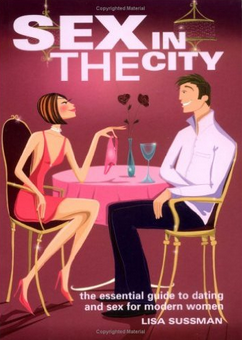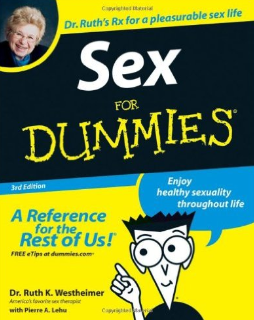Question:
First I just want to say that I love your YouTube videos, they are so informational.
I would appreciate if you could help me with a dilemma. I recently saw a picture of my boyfriend on a website that I would consider to be a gay site. It’s primarily for people who are attracted to transsexual people. Most of the people on the site are pre-op which means they still have dicks, which makes me even more concerned. I have absolutely no idea if he has ever been with someone like this or if this is just a fantasy but even if it is just a fantasy, I’m concerned.
I don’t know how to bring this to his attention but I know I need to because I’m worried and he could be putting me in danger of getting something. How do I let him know or ask him if he is living a double life or is on the downlow? We’ve been together for 3 1/2 years and it would hurt my heart to know that he is like this. He has never shown signs of being interested in men in any way. As a matter of fact he always talks and acts as if he’s damn near homophobic. I appreciate your help!
Answer:
First off thanks for watching and supporting what I do!
As for the question…I too have been there.
When I was in high school I was in a relationship with someone that I loved very much. We were very close, not only lovers but best friends, we were together all the time and thought one day we would get married…typical high school sweethearts.
One day I found his journal and read it (which I know was wrong of me) and in doing so found a phone number and beneath it a males name and a code. Out of curiousity and trusting my instincts, I called it. The number was for a chat line called “Manline“, where males can talk with other males (I’m sure you know what I’m getting at). I was shocked, sad, angry, hurt and disappointed. You name it, I felt it.
So after a few days of tormenting myself I confronted him. He denied it. I asked him again and told him that I already knew what was going on so he better be honest. He still denied it, not only that but got very angry with me for invading his personal space and privacy. Looking back, and knowing him as well as I did, I can completely understand why he’d be upset. And in truth, it wasn’t so much that he was interested in men that hurt, it was that he had lied to my face without a thought towards my feelings.
I made a decision based on the information I had to end the relationship. I didn’t want to chance “catching” something nor did I want to be lied to. I also wasn’t sure if I could trust him again, if he was able to lie once, what was to say that he couldn’t/wouldn’t do it again. It broke my heart, but I felt it was in my own best interest.
Of course my situation isn’t your situation, so what I have to offer is this; before you make up your mind make certain it is him and not someone that looks like him, sounds like him or writes like him. How you do that is your choice, but I do think it’s important. If you’ve done your research and are sure it’s him, bring it up with him in a gentle and respectful way (I find asking rather than confronting can make a big difference in how people react). Let him know that you are not judging, but that you need to know for your own safety and security. I’d also suggest taking some time to figure out if he’s someone that you want to continue having in your life if it is true – just because he may be attracted to men or transexuals doesn’t men he’s a bad person or that he’s not the same person you once loved.
Be prepared for him to deny it, to lie, to try to cover it up to get mad at you, at himself, to yell, or cry, or start a fight. If it is infact him, you may be putting him in a situation that he is personally not yet ready to face or deal with. He might not even know himself “what” he is or “who” he is, and this might be part of his experimentation or exploration to find out. Please also keep in mind that as this may be his way of experimenting…it might also be something that will pass in time. However, this was never meant for your eyes. Only his.
In my situation there was a long period of time afterward where we did not talk. We were always aware of how each other was, either through friends or the ‘scene’ we both frequented, but for the most part there was no face to face contact. After about a year of absence from each others lives we talked on the phone, it was an emotional, eye opening and healing conversation where he admitted everything and told me that he was gay, that he had been all along but didn’t want to come out for fear of how people would react. He was a sensitive person and the thought of people rejecting or abandoning him terrified him, rather than coming out he just kept quiet. Up until his passing over a year ago we were still in each others lives, often having short periods of distance followed by intense periods of catching up and being inseparable. Regardless of our past, until the day he died there was love. Lots of love…and also lots of forgiveness.
Unfortunately I cannot say that you will have your own “happy ending”, that the pain, frustration and confusion you’re experiencing will all be for nothing. I don’t know you and I don’t know him, so my opinion is just that – an opinion. I can however suggest that maybe this isn’t something personal about or against you…but instead, a part of who he is and needs to learn about so that he can within himself become “whole”.
Be gentle with your approach, loving with your words and try to remember that we all, on every level, deserve to be treated with respect and decency no matter what our sexual “choice” in life is. That being said, I have lived my life by one very true motto that spoke volumes to me when I was younger and questioning the “wrongness” or “rightness” of my own sexuality:
A hand is a hand,
A touch is a touch,
Love is Love.
And Love cannot be denied.
I wish you the best of luck and truly hope that whatever happens you’ll be able to remain respectful and understanding regarding each others feelings. I wish there was a clear cut answer to this kind of situation, unfortunately there isn’t and we just have to make up the road as we go.
Kara_Sutra
p.s I would also like to state that in my opinion, when it comes to being homosexual, transexual etc…there is no right or wrong. The statement that it is a persons “choice” has no relevance to me. You are who you are and that can’t be ignored or denied. Nor should it be.
Sit back, relax, let me come to you. Sign up for mailing list and get content only when I post it. Don’t worry I promise not to spam you!
Go Back To Previous FAQ/Q&A Listing






























